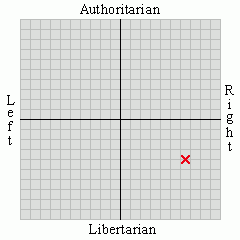All property rights are important for freedom, and in that I include the right to the benefits of creative endeavour, tangible or otherwise. However the holders of copyrights and their intermediaries need to start understanding not only those laws but how to effectively manage licensing in a world of instant global communication where communities might be spread over the world.
I have noticed disparate cases, all with the common themes of licensing management and technological development. Sometimes the licences are behind the times, others someone is trying to get ahead, but at odds with the consensus of their customers.
At least Amazon apologised and agreed to change practices for the future when they failed to understand people’s feelings about copyright, and even apparently their own user agreement. They should treat new media like old – you buy it it’s yours. If it wasn’t there’s to sell that is Amazon’s problem. The latter is critical to Amazon’s future in the new medium of electronic books.
The case that triggered this post was Associated Press announcing a crackdown on unpaid use of its articles on the internet.
The first problem with this is that they have no right to do so, or at least not to the degree the AP intends. Leaving that aside, the AP just seems not to understand the modern world. Hot Air, where I found the story, calls it “…the fast track to AP irrelevance”. If Tom Curley (AP’s President and CEO) thinks this then I reckon Hot Air has a point:
“If someone can build multibillion-dollar businesses out of keywords, we can build multihundred-million businesses out of headlines, and we’re going to do that,” Mr. Curley said. The goal, he said, was not to have less use of the news articles, but to be paid for any use”
In my less-than-humble opinion he is deluded. We shall see.
People will just be fed up of AP. They don’t play nicely people won’t want to play with them. It is they who will lose. AP has not understood the modern world, let alone anticipated the future.
This is an increasingly noticeable phenomenon. Large businesses run by people isolated from the real world make licensing decisions that fail to take account of modern reality. In many cases they then complain when they lose money. A letter in the Telegraph last month signed by representatives of copyright holders demanded stricter enforcement of laws. I managed to get a reply published, but they edited out my main point, that the copyright holders are themselves to blame if they abuse their monopoly when making license agreements that don’t take into account the modern world.
When internet music download came about the licensed sites lagged far behind the illegal sites. At the same time CDs were overpriced. The price of an album went up when CD replaced tape and vinyl, although the manufacturing and distribution costs were in fact lower. Of course people then stole the music. When paid download finally arrived the cost varied depending on where the recipient was, by IP address. Of course people felt cheated, and some either bought from foreign sites anyway (via a proxy say) or simply carried on using illegal sites.
The latest ridiculous anachronism in licensing is on internet TV, and mirrors the region-code cock-up that is DVD. The internet is international. There are no borders. I have friends in the USA, Australia, New Zealand, Hong Kong, Denmark, Greenland, Norway among others who might be recommending ideas, sharing favourites with me. 35% of my traffic here comes from the USA, a similar proportion of my blog-reading time is probably spent on US sites. So why does Hulu, the internet TV site, give me this message when I try to watch Family Guy?
This is a fundamental misunderstanding of the nature of the internet. Why are licensing rights on the internet still sold in such a piecemeal way? That alongside the regional codes on DVD are driving the bit torrent phenomenon.
There will always be problems with copyright that crop up as technology develops. Globalisation caused the Amazon Kindle problem, where a work is no longer copyright in some jurisdictions. However such problems need to be addressed with reference to reality, not some idealised world with no pirating. I can see no excuse for major production companies, record producers and publishers not to negotiate world rights to material that is still copyright in all major markets, and charges that roughly correspond over those markets. If they refuse to do so they can hardly be surprised if people circumvent their restrictions.
Associated Press is likely to resolve its own case, as it either backs off its stated intentions or fades away, being ignored.





1 comments:
Lovely blog you hhave
Post a Comment